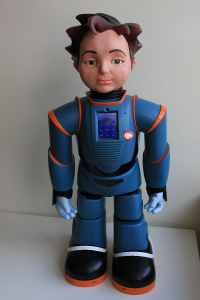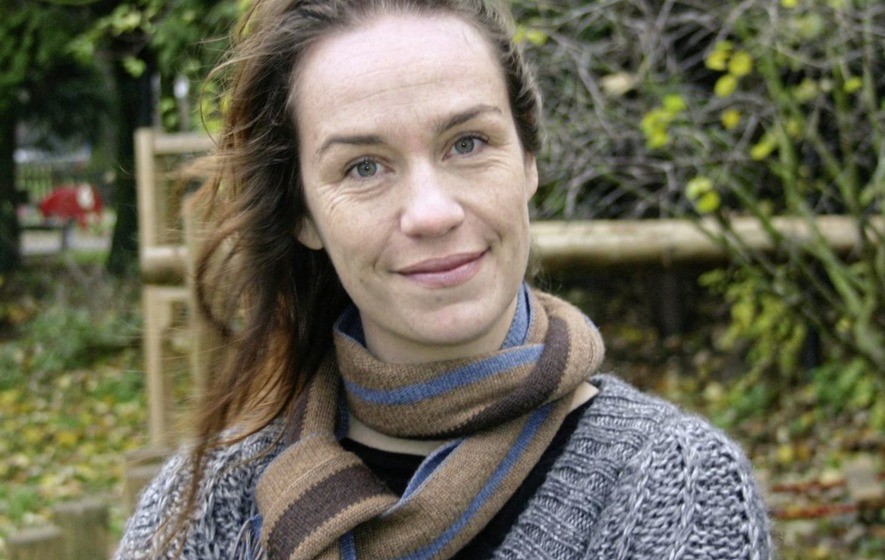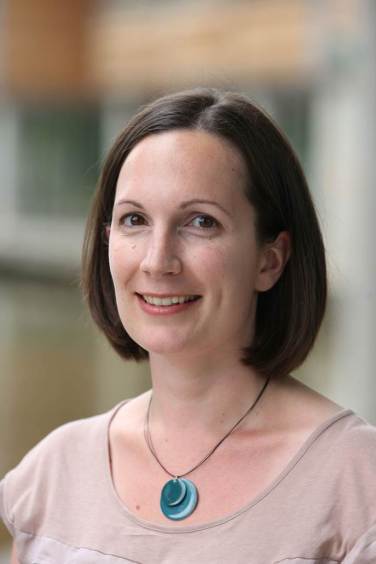We are delighted to welcome researcher Jo Van Herwegen, Associate Professor at Kingston University, to our series in which researchers talk about the relevance of their work to the classroom. Welcome Jo!
 What is the focus of your research?
What is the focus of your research?
My research focuses on development, especially language and mathematical development, in children with neurodevelopmental disorders such as Williams syndrome, Down syndrome, Autism Spectrum Disorders and Developmental Language Disorder. Understanding how development in neurodevelopmental disorders deviates from typical development doesn’t just allow me to develop intervention programmes for children with neurodevelopmental disorders, it also provides a better understanding of the building blocks of development as well as alternative pathways to success.
For example, typically developing children who are good at maths are also skilled in mathematical estimation (e.g., saying where there are more dots) and have been argued to have a better Approximate Number System (ANS) abilities. This suggests that the ANS is an important building block for mathematical development. However, it is also possible that better mathematical abilities allow the development of a better ANS. Studies with typically developing children often rely on correlational findings, but these studies cannot provide insight into causal pathways. Studies in neurodevelopmental disorders or populations who have difficulties in a particular area can therefore help further our understanding of what results in mathematical delay.
What led you to this area of research?
Mathematical abilities in people with Williams syndrome (WS) and Down syndrome (DS) have been found to be delayed. My research in infants with WS and DS showed that children with DS are proficient at approximate number estimation, while children with WS are not, suggesting that ANS abilities might be a good starting point to improve mathematical abilities in children with WS. While WS is a rare genetic disorder (1 in 20,000 live births) so it’s difficult to carry out large intervention studies, children who show specific mathematical difficulties or dyscalculia have also been argued to have weaker ANS abilities. Therefore, we recently developed some games for pre-schoolers, called PLUS games that target ANS abilities and we assessed whether playing these games for 10 minutes each day would improve ANS and mathematical abilities in pre-schoolers who were at risk for mathematical difficulties or dyscalculia.
Could you summarise your findings?
Our study showed that those children who played PLUS games had better ANS abilities in the long-term and improved as much on symbolic mathematical ability tasks as those children who played more traditional counting and number recognition games, called DIGIT games. The fact that improving ANS abilities through PLUS games improved symbolic knowledge, and that improving symbolic knowledge in DIGIT games improved ANS abilities, suggests a complex interaction between symbolic and non- symbolic abilities and mathematical improvements during the pre-school years. In addition, children who played the PLUS games were reported by teachers (who were blind to which condition the child belonged to) to show greater confidence when completing mathematical tasks. In the near future we would like to assess whether the PLUS games would also benefit mathematical abilities in children with WS.
What do you think this means for teachers in the classroom?
Traditionally, pre-school instruction in the UK is informal and happens during play, with children who show mathematical difficulties receiving very little additional support. Our results show that both PLUS and DIGIT games improve pre-schoolers symbolic and non-symbolic abilities both short-term (immediately after the training) as well as six months later. Although we were not able to follow-up these children longitudinally to examine which children received a formal diagnosis of dyscalculia later on, around half of the children were no longer considered to be low performers six months after the start of the study. This suggests that playing the PLUS as well as DIGIT games on a regular basis for just five weeks during the pre-school years allows children who perform poorly on mathematical ability tasks to have an optimal start to schooling – and might prevent some children from receiving a formal diagnosis of dyscalculia later on.
If you could give one tip to teachers based on your work, what would it be?
When doing mathematics with young children we often focus on counting and we are quick to correct counting errors. This potentially can make even young children “afraid” of maths or think they are “bad” at maths. However, we know from research that estimation is a very important building block for children’s mathematical understanding and development. So next time when you ask a child “how many things are there”, allow them to guess and discuss whether the number they name is a large number or a small number and how it compares with the real number of objects in front of them.
The PLUS and DIGIT games and the full results from the study can be downloaded for free from here







